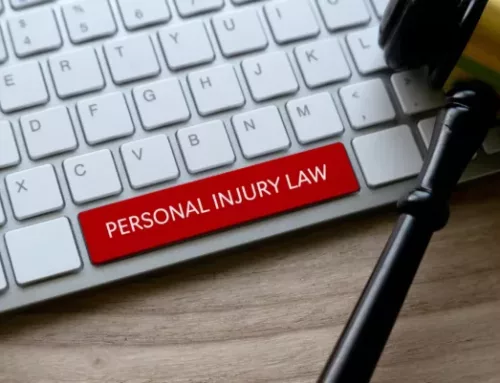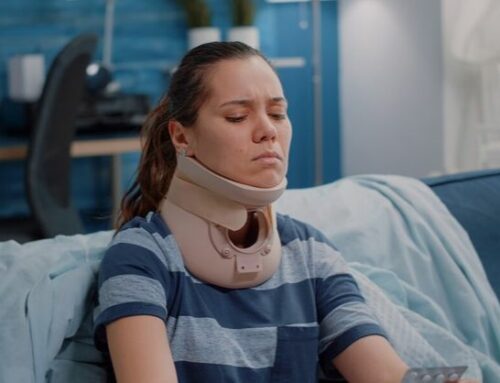Timing is Everything In Your West Virginia Injury Case
In West Virginia personal injury law, the statute of limitations for initiating a case begins when the injured party finds, or reasonably should have known, the harm and its cause. This provision lets West Virginians sue within a certain window after discovering their injury, not from the date it occurred. This provision ensures that people who discover their injuries have a fair chance to seek legal remedies, even if it has been some time.
Quick Summary:
- Statute of Limitations in West Virginia: According to West Virginia law, you have two years from the injury to file a personal injury claim. Avoid missing this deadline, which could result in the court rejecting your case and limiting your bargaining power.
- Importance of Early Attorney Involvement: Consulting an attorney before the deadline lets you gather evidence, develop a strong case, and notify the opposing party of your intent to sue. Early action can speed up compensation and preserve witness memory and testimony.
- Exceptions and Extensions: Defendant evasion, occurrences involving minors or insanity, and the “discovery rule,” which delays injuries revealed later, such as in medical malpractice or asbestos-related diseases, might extend the statute of limitations. The judge’s judgment on each case’s unique circumstances determines whether an extension is granted.
The West Virginia discovery rule is crucial, allowing anyone to sue after the statute of limitations has passed. This criterion provides fairness and justice by acknowledging delayed knowledge of medical negligence and hidden harms like asbestos-related disorders. It emphasizes the significance of reporting injuries. It helps people whose injuries were hidden or revealed after the deadline.
What is the Statute of Limitations in West Virginia
The West Virginia Statute of Limitations limits civil litigation, including personal injury cases, to a certain term. The statute typically provides two years from the date of harm to file a personal injury claim. This law balances claimants’ need to compile evidence and seek compensation within a reasonable time to guarantee prompt resolution.
How Long Do You Have to File for A Personal Injury Case in West Virginia?
West Virginia’s personal injury statute of limitations is two years from the date of injury. To protect your entitlement to compensation, you must file a lawsuit within this term. If you wait, the court may not hear your case. Early consultation helps meet this deadline and assemble evidence for a solid argument.
West Virginia Statute of Limitations for Personal Injury
West Virginia personal injury statutes of limitations are two years from the injury date. This legal timeframe defines when an injured person can sue for compensation. Failure to file within this time limit can result in the court dismissing the case, preventing legal recourse for the harm incurred.
West Virginia Medical Malpractice Statute of Limitations
West Virginia medical malpractice statutes allow two years from harm to sue. However, under the discovery rule, individuals have up to 10 years after the alleged medical negligence happened to submit a claim, providing a fair evaluation of cases where injuries or malpractice are revealed later. This clause allows delayed malpractice victims to take legal recourse within a reasonable term.
West Virginia Nursing Home Abuse Statute of Limitations
In West Virginia nursing home abuse claims, the statute of limitation is one year from the injury. If the discovery rule applies, the time restriction is 10 years after the claimed medical malpractice.
What Happens if You Miss the Statute of Limitations in West Virginia?
Missing the West Virginia personal injury statute of limitations will result in substantial legal problems. The court would likely reject your case, preventing you from getting injury compensation. Missing this date reduces your capacity to negotiate out-of-court settlements and seek legal recourse. To safeguard your rights and seek compensation for your injuries, you must know and follow this timetable.
What is the West Virginia Discovery Rule?
The West Virginia Discovery Rule extends the statute of limitations for certain legal claims. The statute of limitations may be exceeded, but it permits someone to submit a claim within a reasonable time after finding an accident or harm. This law allows anyone to seek legal remedies after finding injuries or negligence, even if they are not immediately apparent.
What is the Discovery Rule?
Discovery extends the statute of limitations for launching a lawsuit beyond the usual deadline. It lets people sue within a reasonable time after finding an accident or harm, not the date. This provision ensures fair access to the legal system for persons discovering their injuries after the regular time limit when the harm was hidden, undiscovered, or not immediately obvious.
What are the Exceptions to the Discovery Rule in West Virginia?
Exceptions to the statute of limitations in West Virginia can arise in distinctive circumstances:
- If the defendant purposely avoids the lawsuit by leaving the state, hiding locally, or changing their identity.
- Cases where the plaintiff was a minor or suffered from insanity during the accident might extend the statute’s timeline.
- Additionally, in specific personal injury instances, the statute of limitations may only begin when the individual becomes aware or should have been aware of the injury, known as the “discovery rule.”
Discovering a surgical instrument left in your body or getting an asbestos-related disease diagnosis years after exposure may delay submitting a claim. It’s important not to presume an automatic extension as courts consider extension requests individually. Appealing could delay the legal procedure without a courtroom resolution if denied.
Is the Statute of Limitations Different for Children?
Special considerations apply to the statute of limitations for minors. In the context of personal injury claims, the statute of limitations typically doesn’t commence until the minor reaches the age of 18. For instance, if a 16-year-old sustains significant injuries in a tractor-trailer crash, the statute of limitations initiates at the age of 18 and continues until they reach 20 years old.
Learn the West Virginia Discovery Rule With Legal Help
The West Virginia discovery rule extends the statute of limitations to a reasonable time after discovering an injury, not when it occurred. When injuries or harm were initially hidden, this criterion applies. Allowing injured people to sue after the customary time limit ensures fairness.
Contact Ghaphery Law Offices, PLLC to learn about personal injury statute of limitations and discovery rules. The law company can assist with additional personal injury issues such as car accidents, premises liability, and product liability.
Seek justice for your injuries and beat the clock of West Virginia’s discovery with the help of an attorney from Ghaphery Law Offices, PLLC.






